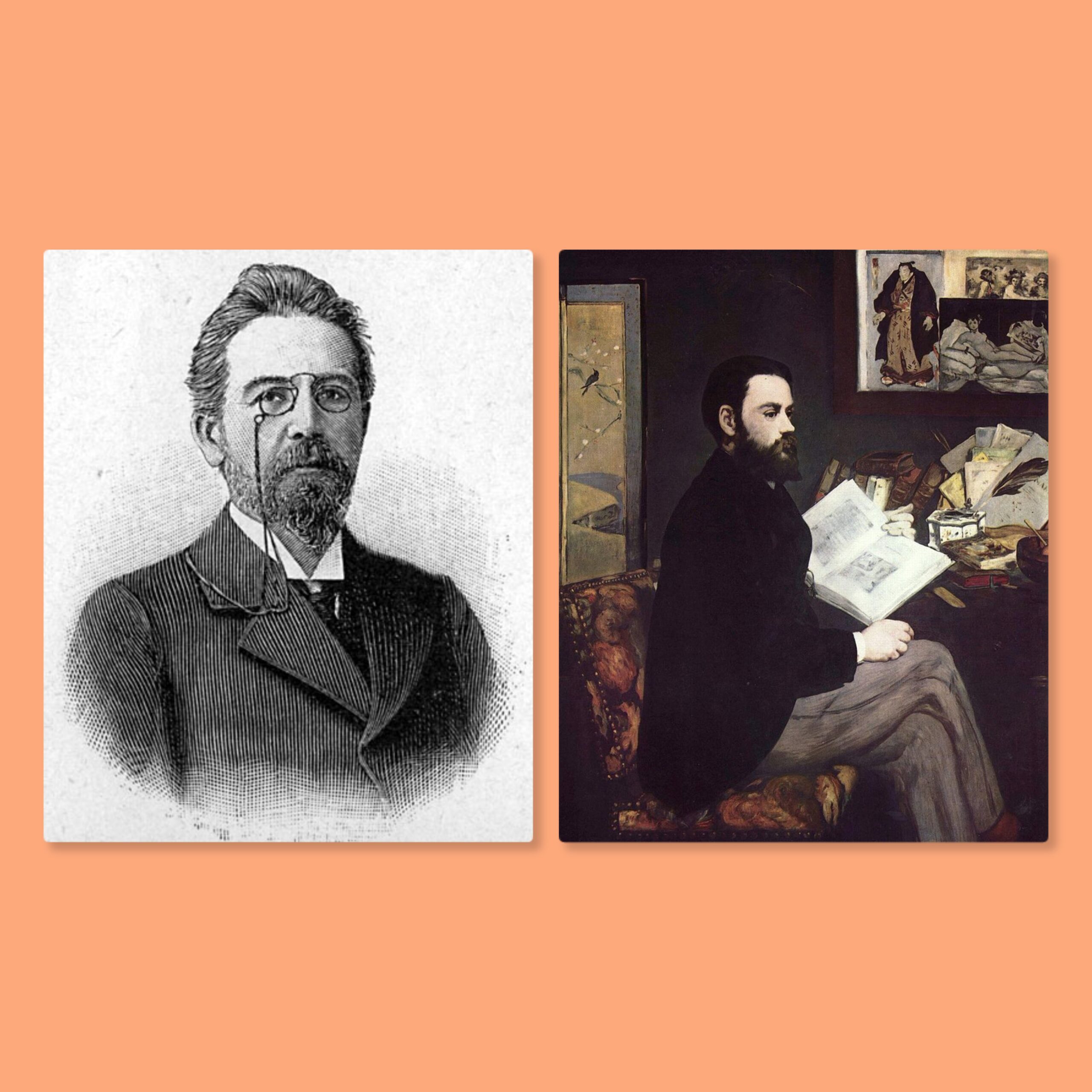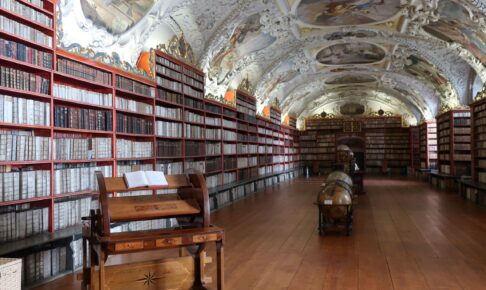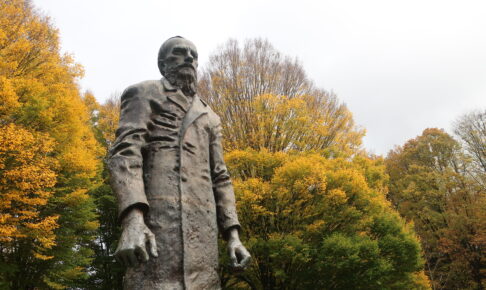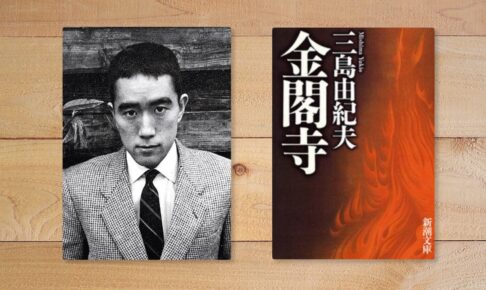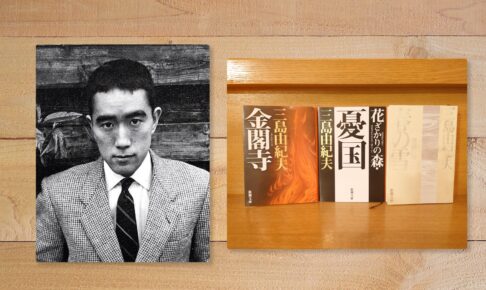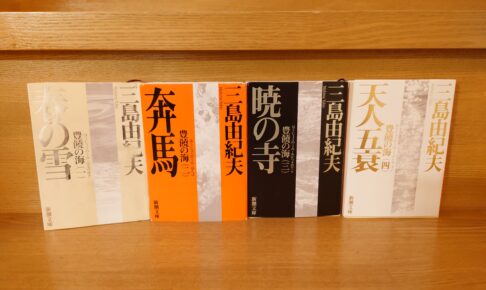Table of Contents
- 1 Now is the time to read Chekhov and Zola! -A dispassionate perspective on the times and how the world works
- 2 Chekhov and Zola
- 3 Chekhov stared at the human mind, Zola at the human and social system.
- 4 If you're not sure what to read, then you should definitely read Chekhov and Zola! Even if you're not on the fence, by all means!
- 5 Five of Chekhov's recommended works
- 5.1 The ultimate in Chekhov novels! The synopsis of "Ward No. 6" - too horrific, too shocking!
- 5.2 Chekhov's "Suguri" Synopsis - What is happiness? Is happiness possible without someone else's sacrifice?
- 5.3 Chekhov's "The Monk in Black" Synopsis Commentary - Is there a fine line between genius and madness?
- 5.4 Chekhov's "Rothschild's Violin" Synopsis - A moving story of grief and awakening of a man who has wasted his life.
- 5.5 Synopsis of Chekhov's masterpiece "The Seagull" - The essence of Chekhov's plays
- 5.6 Zola's recommended works
- 6 It is not great because it is a classic. It's a classic because a masterpiece has remained a classic through the ages.
Now is the time to read Chekhov and Zola! -A dispassionate perspective on the times and how the world works
So far on this blog, we have been covering Chekhov for about a month.
I myself was most surprised to read so much about Chekhov, who is not an essential writer in the study of Dostoevsky.
But I am glad from the bottom of my heart to have been able to read Chekhov.
Chekhov is a fearsome adult. It is a shame that such an amazing writer is so little known in Japan.
His works are not only interesting but also shake our "way of seeing things" and "sense of values.
Dostoevsky also has an overwhelming power to knock the reader into chaos and turn our worldview upside down.
Dostoevsky is a mad writer, for better or worse, as he moves forward with a strong personality.
Unlike Dostoevsky, however, Chekhov appeals to us with a more sober and gentle gaze.
There is a calmness in Chekhov that envelops us. This cool, gentle calm is a major characteristic of Chekhov.
I have previously published an article titled "Chekhov, a Writer Representing the Late Imperial Russia - For Understanding Russia after the Death of DostoevskyAs I mentioned in the article "Chekhov's Warnings", what Chekhov tells us is a very important warning for living in modern Japan. I would like to reintroduce it here.
By the way, Russia at that time had many similarities with Japan today. First of all, just as anime and manga were flourishing in Japan, Russian comic novels were thriving. People were looking for "laughter.
There is a social background to this. The failure of the great enlightenment movement of idealistic and dedicated young people who went out into the countryside with the call of "Vu Narod" for social reform is somewhat similar to the celebration of democracy in postwar Japan and the storm of school conflicts in the 1970s and their dissolution and disappearance.
Eventually, the fever died down, idealism was dispelled, and "idealistic" things were considered "lame" and "naive. In place of the pure "ideals" came the "money-grubbers," who chased after greed and money. The same is true for the many young people who do not have a map of where they are going.
In Japan, "Horie Mon" was a hero for a time, but soon the bubble burst, the new "Golden Yasha" disappeared from history, and soon the wave of the great recession caused by the "financial collapse" at the end of the money game came in from across the sea. Do people not recognize "madness" in this sequence of events?
Russia after the failure of "people'sism" and Japan today are somewhat similar. History repeats itself in different forms.
In the case of Japan, people who had lost the purpose of their lives sought to find solace in sports, gourmet food, and laughter as a means of coping with their "melancholy," but in Russia at that time, either the indulgence in reading comical novels or, conversely, Schopenhauer's pessimistic philosophy that "depression" was the true nature of life, became popular to drown out "melancholy. Schopenhauer's philosophy of pessimism, which taught that depression was the true nature of life, became popular in Russia at that time.
In those days, as Chekhov said, "I wrote everything but poems and informers," poverty was the rule in Russia, and "beggars" could be seen everywhere, especially in front of Russian Orthodox temples. Russia has long been known for its high suicide rate, similar to Japan, where over 30,000 people have committed suicide and the number of "shut-in" students has reached 30,000. Are there any similarities between the circumstances that made Russians jump to laughter at that time and the prevalent trend of manga, anime, and empty comic strips in Japan?
Ibunsha, Seiro Sato, "My Heart's Chekhov," p24-26
The Chekhov scholar Seiro Sato, who wrote this article, warned contemporary Japan as follows: "In this situation, Chekhov is the one who will confront this problem head-on and ask us what we should think and do. In this situation, Chekhov is the one who confronts this issue head-on and asks us what we should think and do.
I agree exactly. The current era is not only a crisis caused by the corona. In the first place, our minds and the very structure of society itself were on the verge of a crisis. The corona has added to the crisis, exposing all the distortions that have existed up to this point and making the situation even more critical.
The problems were already everywhere. But we turned a blind eye to them through the economy and various coverings. I believe that the result is the current unprecedented crisis.
Chekhov and Zola
Chekhov stared at such times and the human mind.
Where did Chekhov's awakened gaze come from? It was in Chekhov's learning as a doctor. Let us look at Sato's "My Heart's Chekhov.
After receiving a scholarship from Taganluk City and enrolling in the Moscow State University School of Medicine, his life path has been, for the time being, on the right track. I think this is very significant. It has helped to solidify his convictions.
We must also take into account that this was a time of rapid scientific progress. Especially influential on Chekhov were Charles Darwin's "The Origin of Species" and Claude Bernard's "Introduction to Experimental Medicine. The twenty-six-year-old Chekhov was even impressed by Darwin's book.
'I am reading Darvin. What a wonderful book. I respect and love him." "Darvin's method [empirical induction] - I love that method."
The central idea of Claude Bernard'sdeterminismwas the subject of much debate in Europe at the time, and Chekhov, a medical student, was familiar with it from the lectures of his mentor Zaharin.
Eibunsha, Seiro Sato, "My Heart's Chekhov," p.12-13
*Lines have been changed as appropriate.
Chekhov had the unique distinction of being both a doctor and a writer. As a medical student, Chekhov studied Darwin's "Theory of Evolution" and the ideas of Claude Bernard.
Here I said, "Ah!" I was like, "Oh!
In fact, the French writer Emile Zola, whom I once read, was also a writer who deeply resonated with the ideas of Darvin and Claude Bernard.
To observe the world scientifically and objectively. This was Zola's basic approach to writing.
In other words, Chekhov and Zola have a similar way of looking at things. I sensed this immediately when I read Chekhov. I felt that both of them tried to look at the world as objectively as possible, with eyes that took a step back.
Senior writers such as Dostoevsky wrote "Notes from the Basement" with this determinism in their eyes. He said that flesh and blood does not act according to determinism, but is driven by "hachenie" (emotional desire). No wonder he said, "If you ask me whether I will take the truth or Christ, I will forsake the truth and take Christ."
Eibunsha, Seiro Sato, "My Heart's Chekhov," p.13
And here Sato cites Dostoevsky.
Indeed, Dostoevsky disliked this objective, rational perception of the world. He hated the logic of "two and two is four," saying, "Human beings cannot be solved mathematically. We are not machines.
Unlike Dostoevsky, however, Chekhov, as a physician and scientist, resonated with the views of Darvin and Claude Bernard.
The physician Chekhov, contrary to Dostoevsky, sympathizes with the ideas of Bernhardt. Bernhardt said, "I am not a fan of the idea of the "Dostoevsky".
The person who trusts his own doctrine too much will certainly not trust the doctrine of others enough. At this time, the thoughts that are in the mind of this person who despises others are likely to discover the faults in others' theories and strive to oppose them."
Theories should not be taught as dogma or articles of faith."
No man's opinion - whether in the form of an academic theory or otherwise - can be considered to represent the complete truth in science. It is a guide, a light, but not an absolute authority. But it is not an absolute authority." (Translated by Miura 岱栄)
Chekhov must have nodded his head when he said that scientific truth is just another "hypothesis. He affirms progress in the sense that everything changes and everything is metabolized.
Eibunsha, Seiro Sato, "My Heart's Chekhov," p.13
This is a very important point to make about Chekhov and Dostoevsky.
Like Tolstoy, Dostoevsky pursues absolute truth. Chekhov, however, believes that the world is made up of relative things, not absolute truths.
There can be no absolute good or evil. Truth changes as one looks at things differently. Or, perhaps, even truth is impossible.
It is this kind of thinking that has allowed Chekhov to take a step back and have a cool, gentle gaze, rather than the mad immersion in something that Dostoevsky did.
Chekhov, like Zola, was a writer who valued science. But Chekhov was still Russian. If you read and compare the two, you will see that Zola is thoroughly objective in his descriptions and analysis. In contrast, Chekhov's work is more emotional or poetic. Chekhov's personality, which values rational thought but also human emotion, oozes from his work.
This is the difference between Chekhov and Zola.
That is not to say, however, that Zora does not have a human touch. Zora, in her own way, naturally has human love and kindness.
However, the style of the work still has a somewhat detached, flat, scientist-like grasp of reality.
Of course, that does not mean that Zola is not good. As we have been saying on this blog, Zola's novels are very interesting. However, if we compare them in terms of style, there are differences between Dostoevsky, Chekhov, and Zola.
The following article from our blog may be of interest to those who are interested in learning more about Chekhov and Zola.
Chekhov stared at the human mind, Zola at the human and social system.
Chekhov was active at the end of the Russian Empire, an unsettled and closed era dominated by the secret police. Literature that questioned life was at a low ebb, and people sought entertainment to relieve their sorrows.
That's what I read earlier from Mr. Sato.
Japan is in a critical situation both economically and internationally. However, those of us who barely manage to live day by day have lost the luxury of even asking ourselves what it means to live.
We can no longer do anything but seek entertainment to relieve that fatigue and stress.
In fact, the media is filled with such things as gourmet food, hot springs, travel, comedy, sports, fashionable things, and so on. I am not denying entertainment itself. I would have a hard time without them. They are the joys of life. But everything is a balance. If you lean too much toward one side or the other, you will have problems. What Mr. Sato warns through Chekhov is exactly right. The current era is similar to the era in which Chekhov lived. I think this raises an important issue.
History repeats itself in different forms.
This situation in Russia at the end of the Czarist regime eventually led to the Russian Revolution and the establishment of the Lenin-Stalin regime. As a result, the Russian Empire was subjected to mass purges, suppression of ideas, and loss of freedom.
Japan is no stranger to this. History repeats itself in different forms. The world in which we live can suddenly be lost.
Chekhov and Zola warn us of this.
Even in such a gruesome time, Chekhov explores "what is the happiness of human beings" and "what is the meaning of the suffering we have to bear day after day. This is clearly expressed in the booklight' and 'boring story", "ward 6", "currantThe work is called "The Tale of the Tiger". TheseagullThe four major plays, such as "The Last of Us," are also works that search for the meaning of life through the differences in the family.
Chekhov makes us rethink our "natural values. Chekhov challenges us to question what we take for granted as "happiness" and asks, "Is that really happiness?
When I read Chekhov, I often get a thrill. He lived through difficult times with a keen eye, and his sharp points are sure to touch those of us living in the modern world.
Zola, on the other hand, explored social mechanisms and the human psychology involved in them, while Chekhov focused deeply on the human mind.
Zola sought to dissect the very era of the French Second Empire (1852-1870) under Napoleon III. He sought to analyze the extraordinary economic development and ethical changes and depravity of the time.
I have already introduced this French Second Empire in this article before, but this period is the one that created our modern lifestyle, which means that to know this period is to know the roots of our lifestyle.
How did this society that we normally take for granted come to be? How does it work? Zola observes and exposes how we are driven by this system.
What principles actually govern the society in which we live? Zola clearly shows us a world we do not want to see. Zola also shows us how we are embedded in such a world, and how we are driven by it without knowing it.
This is quite shocking. It is hard to believe that this was written over a hundred years ago at all. It is almost as if he is writing about the present day. It is such a terrific analytical power that is on display in his work.
If you're not sure what to read, then you should definitely read Chekhov and Zola! Even if you're not on the fence, by all means!
I have been blogging about Dostoevsky for a long time now. I am not the original person to say this, but I am.Dostoevsky is not a writer I would recommend to everyone."I have recently come to feel that this is a good thing.
Dostoevsky is one of my favorite writers of all time. There is no doubt about that even now.
However, I have to admit that it is difficult for me to recommend this man to many people as a "must read".
As I mentioned earlier, Dostoevsky is a mad writer, for better or worse. And his style of writing is like black magic, leaving us under his immense influence.
It is not recommended, especially if you are tired or mentally depressed. You will probably be swallowed up. You may even become mentally ill. This is not a joke, but my true intention. There was a time when I myself was affected by Dostoevsky and became physically ill and mentally unstable. (In a way, maybe this is the best part of Dostoevsky...)
Dostoevsky continues to stare into the depths of human beings and their chaos. He goes to any length to enter the depths of his characters' hearts and minds. The great thing about Dostoevsky is that he allows us, the readers, to experience it as well. This is made possible by his unique, black-magic style of storytelling.
Dostoevsky's approach was not so much to the human being in relation to society, but to the roots of the human being that lie within each individual person.
In contrast, Chekhov looked into the hearts of people living in society. He looks into the mind of each individual in the context of human interactions in a certain environment. It is not simply a question of the individual, but of the individual in the group.
Zola also analyzed the social structure itself and from there studied the human psyche.
They are all three very different in the way they see things and the objects they view.
To be honest, I do not recommend reading Dostoevsky's works, which may even drive you to insanity in today's world of affordability. But if you are prepared to read it, you should definitely read it. It will be a very good reading experience. There is no doubt that Dostoevsky is the pinnacle of literature.
However, it is quite risky to just casually read it, and it is not a book that can be comfortably read as an entertainment novel, so I think it will be hard to read. I think it would be a waste if you end up disliking Dostoevsky because you misunderstand him by forcing yourself to read it.
I am sorry that I seem to have raised the bar, but a high bar is not necessarily a bad thing. I feel that it would be a sad consequence if the threshold is forcibly lowered and the original excellence of the work is not fully conveyed to the audience and they misunderstand it as "nothing more than this. Dostoevsky is a great writer. However, he is not a writer that I can recommend to everyone.
Now, a quiet word.
In contrast to what I mentioned about Dostoevsky, Chekhov's works are short and easy to read. The shortest of Chekhov's works is a few dozen pages, and the longest is about a hundred pages. Moreover, his writing style is clean and easy to read, not at all different from that of modern novels. It is easy to read and understand. The works are not at all inferior to contemporary novels, and are even more interesting than contemporary novels.
Zola's works are also somewhat longer, but the writing style is easy to read and the story appears before your eyes as if you are watching a movie. It is surprisingly easy to read, so much so that we would like you to experience it for yourself.
Chekhov and Zola are definitely the right writers for our times. In this era of stagnation and uncertainty, where it is difficult to know what is right and what is wrong, Chekhov and Zola shed new light on the situation.
What should we do, what should we think?
And how does this society work in the first place? How was it created and how does it still operate?
I am sure that the Corona disaster has made many people ask these questions. There is now a great deal of information available on the Internet and in books, but I urge you to pick up a copy of Chekhov and Zola.
Five of Chekhov's recommended works
Here are five Chekhov works that I particularly recommend, though briefly. They are the gems of Chekhov's essence.
The ultimate in Chekhov novels! The synopsis of "Ward No. 6" - too horrific, too shocking!
This work may be said to be one of the best, or perhaps the most gruesome, stories in Chekhov's oeuvre.
Just reading the synopsis of the film, in which the director is somehow made a psychopath, fired from the hospital, and even thrown into a psych ward to die there, gives you a glimpse of the horror of the film, but if you read the film, you will understand the horror even more. It is probably scarier than watching any horror movie.
However, this fear is not "horror-movie fear," but the fear of being confronted with human nature and one's own falsehood.
When you read this piece, you may ask yourself, "What? What am I then? What's the difference between this director and a psychotic? What is the difference between sanity and insanity? Is the only way for me to be used by those who live cunningly? Is everything meaningless in the face of ...... violence?" Various questions will come to mind, such as.
This work made one of the strongest impressions on me, not only of Chekhov, but of any book I have read recently. I hope this work will spread more and more in Japan.
Chekhov's "Suguri" Synopsis - What is happiness? Is happiness possible without someone else's sacrifice?
Although it is a short work of less than 15 pages, it is a masterpiece that condenses Chekhov's views on life and happiness. Chekhov researcher Seiro Sato also wrote about this work,
Suguri" is a wonderful and in some ways frightening work. The content of this short work is comparable to that of a full-length novel.
Hanawa Shobo, Seiro Sato, Chekhov's Literature, p. 104
He praised the film highly. It is a work that makes you think about what happiness is.
Chekhov's "The Monk in Black" Synopsis Commentary - Is there a fine line between genius and madness?
He has a mental illness from which he talks to the hallucinations he has created.
This is reminiscent of Ivan, the main character in The Brothers Karamazov. He, too, is mentally ill and communicates with a demon of his own creation. He, too, communicates with his demons, even though he knows it is a hallucination.
And what is interesting about this work is still the question of whether there is a fine line between genius and madness.
This piece also thrills us. Chekhov is uncommonly skillful in raising issues. He accurately grasps what we usually overlook and presents it in a way that surprises us most. This work is also extremely interesting. I read it in one sitting.
Chekhov's "Rothschild's Violin" Synopsis - A moving story of grief and awakening of a man who has wasted his life.
This work is also short, at just over 10 pages, but again, the content is so condensed that it draws you in very quickly.
And above all, Yaakov's regret for his kind wife who has been silently devoted to him all these years. This is more tragic than anything else...
It is dramatic that he truly reflected on his life when he happened to come to the place he remembered with his wife on his way home from the cemetery.
It is such a sad scene that I almost cried when I read it.
Although Chekhov has the image of having written many relatively lighthearted works, I was surprised to learn that he also wrote such moving works.
This is a masterpiece. I think it would be the most moving work if it were made into a video.
Synopsis of Chekhov's masterpiece "The Seagull" - The essence of Chekhov's plays
The Seagull" is Chekhov's masterpiece.
If it is a representative work, that should be interesting.
I thought so and tried to read it, but there was something wrong.
I just can't for the life of me figure out the fun in that...
I read the reference book, and then I read it again and again, but still, "Interesting!" I read it again and again, but it was still not "interesting!
Of course, it is not "boring". However, it is difficult to understand how interesting it is, especially when compared to Chekhov's other novels.
Why would this be the case?
I have given this a lot of thought and feel that perhaps this is a "play" that should be viewed as a play and not read as a novel.
Chekhov plays do not have tumultuous stories. It is a simple story of domestic differences. Such a delicate, family-like story is the true essence of Chekhov's plays.
In a book, it is impossible to perceive the subtle gestures, tones, and pauses of the characters. It is only when the actors actually perform on stage that the audience is struck by their realism.
The Seagull" is not a novel. It is a play. If it were written as a novel, Chekhov would have written it so that it could be read more like a novel. However, this book is a literal translation of the play "The Seagull.
This is where I thought there might be some difficulty in getting into the book. Please see the article above for more details about this situation.
I have included it in my five recommendations, but it is my wish that everyone should see it as a play and not as a book. I have never seen it myself, but if I have the chance, I would love to experience it in person.
Zola's recommended works
Zola's work is the best textbook for understanding how the world works.
How does this society work? Why do people fight? Why can't people resist their desires? What kind of methods do people use to take advantage of other people's desires?
Zola shows us the harsh reality of the world. In this work, human beings' sordid and blackened emotions and troubles fly about as much as possible without any pretense of purity.
It is as if he were saying, "To know the world, you have to eat poison. If you live in a sterile room, you will never make it across the world.
Please also see this article.
It is not great because it is a classic. It's a classic because a masterpiece has remained a classic through the ages.
Both Chekhov and Zola are writers over a hundred years old. To people today, they might fall into the category of old and difficult classics.
But I want to say! The fact that you call them classics makes them more difficult to get to!
A lot of people read it and said, "This is interesting! This is a wonderful work!" have become classics simply because they have remained completely unfaded over time.
It is not great because it is a classic. It became a classic because it is a masterpiece.
People often talk about "reading the classics," but if you say "reading masterpieces," the nuance you receive from that is completely different.
In addition, since these classic masterpieces are translated into modern languages, they are no different from the books that are being produced today. Although they are different from books that are marketed as "easy to understand" or "easy to read," they can be read on the same footing as novels and other works that are being produced today.
Even recently published books are often greeted by the media and word of mouth with the words, "This is interesting! A masterpiece! I recommend it!" I think that most of us read a book after hearing the words "This is interesting!
I think that Chekhov and Zola should be allowed to stand on the same footing. However, I believe that the word "classic" may be what is preventing this.
I wish you would push for the term "masterpiece" more! That's what I hope for today.
This is the end of the long article on Chekhov.
I hope that Chekhov and Zola will be more widely known!
The above is "What is a truly good book - a masterpiece that survives the ages and becomes a classic - the beloved Chekhov Zola.
Click here to read the previous article.
Related Articles











